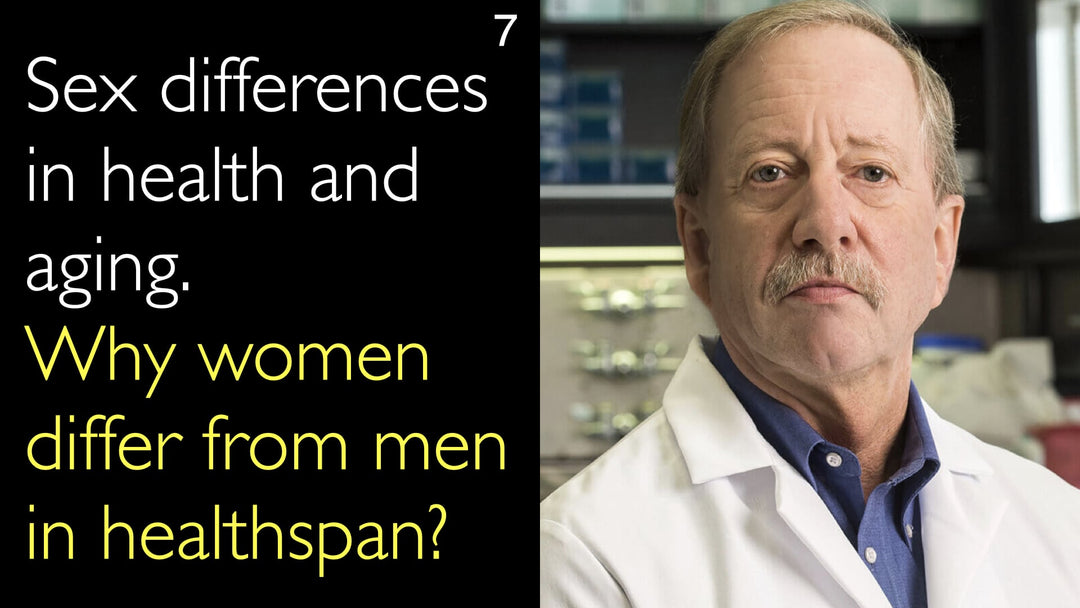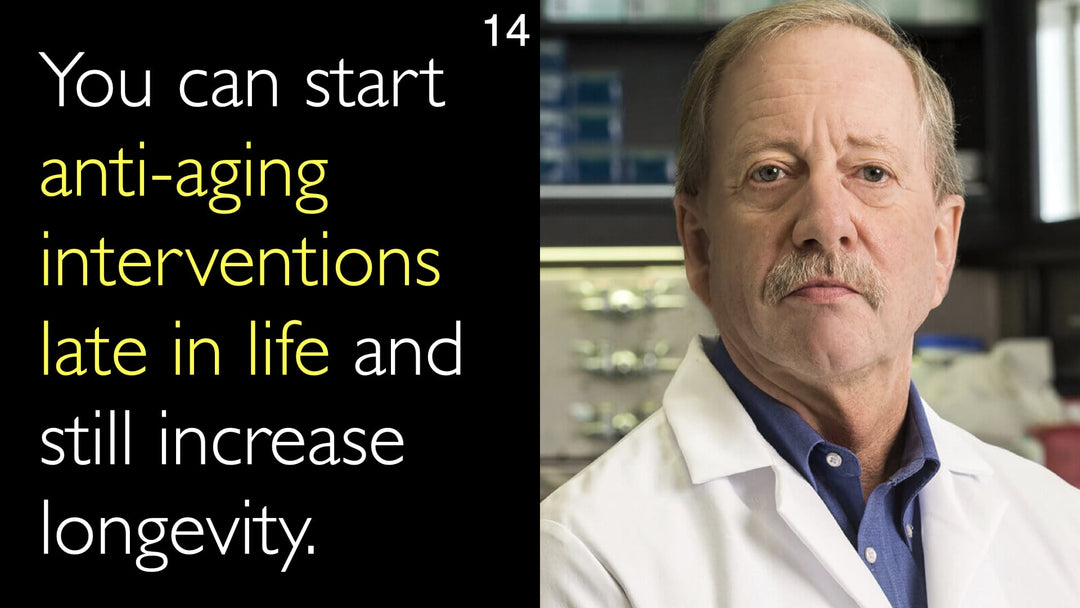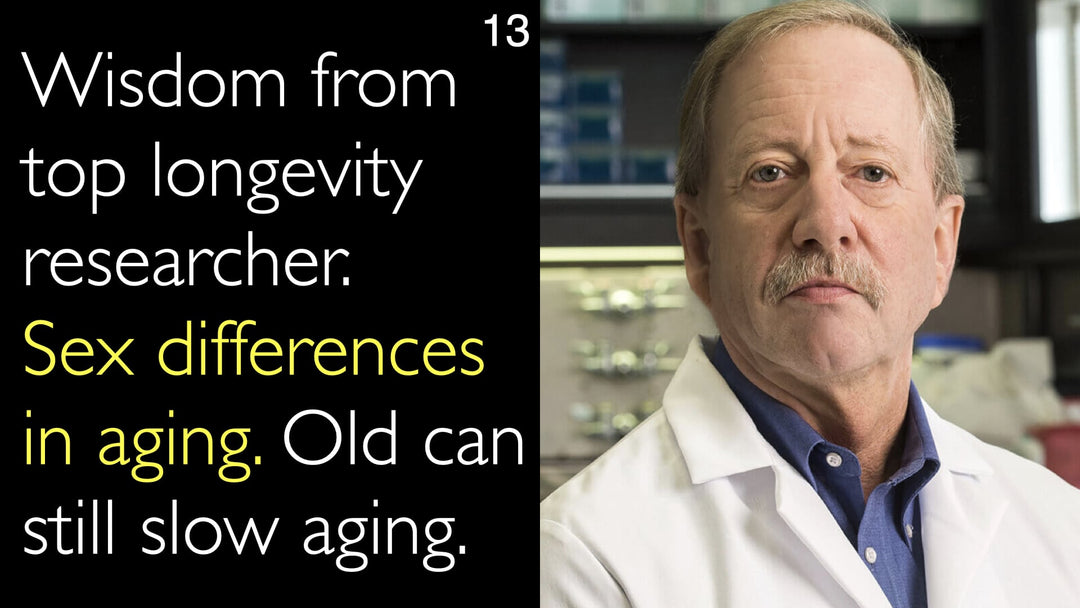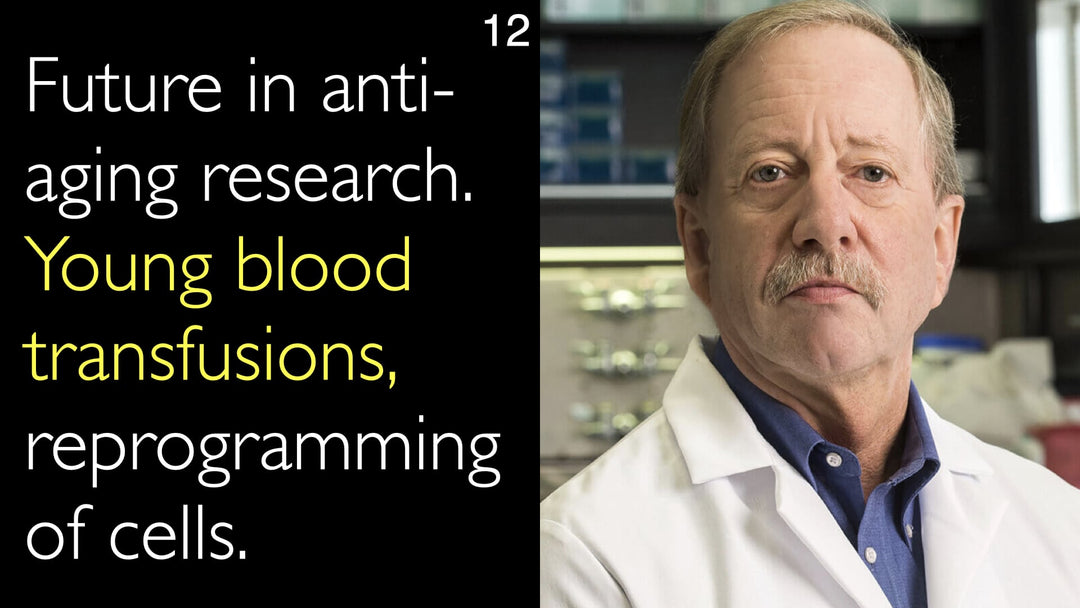Dr. Steven Austad, ein führender Experte für Alterung und Geschlechtsunterschiede, erklärt, warum Frauen länger leben als Männer. Er beschreibt einen grundlegenden weiblichen Überlebensvorteil, der in allen Ländern und historischen Epochen zu beobachten ist. Mögliche Ursachen, darunter hormonelle Einflüsse und genetische Faktoren durch die beiden X-Chromosomen, werden von ihm erörtert. Zudem geht er auf das überraschende pränatale Geschlechterverhältnis ein und beleuchtet den entscheidenden Unterschied zwischen weiblicher Lebenserwartung und männlicher Gesundheitspanne.
Geschlechtsspezifische Unterschiede in Lebenserwartung und Gesundheitsdauer
Abschnitt springen
- Überlebensvorteil von Frauen
- Hormonelle Einflüsse auf das Altern
- Genetische Faktoren und das X-Chromosom
- Überraschungen beim pränatalen Geschlechterverhältnis
- Unterschied zwischen Lebenserwartung und Gesundheitsdauer
- Vollständiges Transkript
Überlebensvorteil von Frauen
Dr. Steven Austad beginnt mit einer bekannten, aber tiefgreifenden Beobachtung: Frauen überleben Männer in jedem Land und jedem historischen Zeitraum mit verlässlichen Daten. Dieser weibliche Überlebensvorteil zeigt sich selbst unter extremen Bedingungen wie Dürren, Hungersnöten und Pandemien. Männer weisen bei fast allen Haupttodesursachen höhere Sterberaten auf. Die einzige nennenswerte Ausnahme ist die Alzheimer-Krankheit, deren Ursachen weiterhin erforscht werden.
Hormonelle Einflüsse auf das Altern
Eine zentrale These für diese Langlebigkeitslücke betrifft Reproduktionshormone. Die verbreitete Annahme lautet, dass Östrogen schützend und Testosteron möglicherweise schädlich wirkt. Dr. Austad verweist auf historische Belege aus Studien an kastrierten Männern. Untersuchungen an Eunuchen des koreanischen Hofes sowie an Personen in psychiatrischen Einrichtungen zeigten einen signifikanten Effekt: Kastrierte Männer lebten 10 bis 20 Jahre länger als nicht kastrierte – ein deutlicher Hinweis auf den hormonellen Einfluss auf die männliche Lebensdauer.
Genetische Faktoren und das X-Chromosom
Neben Hormonen spielen genetische Unterschiede eine Rolle. Frauen besitzen zwei X-Chromosomen, Männer ein X- und ein Y-Chromosom. Dadurch verfügen Frauen über ein genetisches Back-up-System: Ist ein X-Chromosom defekt, kann das andere oft kompensieren. Interessanterweise wird in jeder Zelle des weiblichen Körpers zufällig ein X-Chromosom inaktiviert. Mit zunehmendem Alter beginnt in den Geweben ein X-Chromosom zu dominieren – möglicherweise eine Selektion zugunsten des gesünderen Chromosoms, was den Überlebensvorteil von Frauen erklären könnte.
Überraschungen beim pränatalen Geschlechterverhältnis
Im Gespräch mit Dr. Anton Titov wendet sich Dr. Austad der pränatalen Entwicklung und ihren Implikationen für die Langlebigkeitsforschung zu. Er korrigiert die lange gehegte Annahme, die Konzeption sei stark männlich dominiert. Neue Erkenntnisse zeigen: Bei der Empfängnis liegt das Geschlechterverhältnis nahezu bei 50/50. Während der Gestation schwankt das Überleben männlicher und weiblicher Föten jedoch. Männliche Föten weisen in bestimmten Phasen höhere Sterblichkeitsraten auf, was Frühgeburtlichkeit zu einem bedeutenden Risiko für männliche Säuglinge macht. Diese pränatale Überlebensverzerrung liefert wichtige Hinweise auf biologische Mechanismen, die bis ins spätere Leben wirken.
Unterschied zwischen Lebenserwartung und Gesundheitsdauer
Dr. Austad betont einen entscheidenden Unterschied: Lebenserwartung (wie lange man lebt) versus Gesundheitsdauer (wie lange man bei guter Gesundheit lebt). Zwar leben Frauen länger, doch sind sie im Alter oft kränker. Sie leiden häufiger unter Behinderungen und haben größere Schwierigkeiten mit alltäglichen Aktivitäten. Das ideale Ziel der Medizin ist daher zweifach: einerseits die Lebenserwartung von Männern an die von Frauen anzugleichen, andererseits die Gesundheitsdauer von Frauen an die von Männern anzupassen – um so die Lebensqualität für alle zu verbessern.
Vollständiges Transkript
Dr. Anton Titov: Geschlechtsspezifische Unterschiede in Gesundheit und Altern – ein Dialog zwischen Gehirn und Gonade. So lautet der Titel Ihres Artikels. Sehr faszinierend. Was sind die zentralen geschlechtsspezifischen Unterschiede in Gesundheit und Altern?
Dr. Steven Austad: Unterschiede in Gesundheit und Geschlecht sowie Gesundheit und Altern. Meine wissenschaftliche Arbeit besteht manchmal darin, Dinge aufzuzeigen, die jeder zu wissen glaubt, aber niemand genau beobachtet hat. Bei geschlechtsspezifischen Unterschieden fragt man: Leben Männer oder Frauen länger? Die Antwort lautet: Frauen. Doch das ist nur der Anfang.
Frauen leben tatsächlich länger – in jedem Land, in jeder Epoche, für die wir verlässliche Daten haben. Sie überstehen Dürren, Hungersnöte und Pandemien besser. Selbst unmittelbar nach der Geburt überleben sie häufiger. Es muss also ein grundlegendes Merkmal der weiblichen Biologie geben, das sie zu besseren Überlebenden macht als Männer. Das liegt nicht nur an Herzkrankheiten. Bei fast allen Todesursachen sterben Männer häufiger – mit einer Ausnahme: Alzheimer. Auch das ist noch ungeklärt.
Hängen diese Unterschiede mit Reproduktionshormonen zusammen? Die naheliegende Hypothese lautet: Östrogen wirkt schützend, Testosteron vielleicht schädlich. Sicher wissen wir das nicht. Aber es gibt grobe, doch faszinierende Beobachtungen – etwa zwei Studien an Männern, die aus verschiedenen Gründen kastriert wurden, teils in jungen Jahren.
Eine Studie betraf Heime für psychisch Kranke, eine andere Eunuchen am koreanischen Hof. Positiv an der Eunuchen-Studie: Die Männer wurden kastriert, um den Harem des Königs zu betreuen – ohne Risiko für Probleme. Interessant ist der Vergleich mit anderen Hofangehörigen gleichen sozioökonomischen Status. Die Daten sind grob, aber der Effekt ist enorm: Kastrierte lebten 10 bis 20 Jahre länger. In beiden Studien. Bei Hunderten von Personen. Das deutet auf einen hormonellen Einfluss hin. Doch es könnte noch mehr dahinterstecken.
Frauen haben zwei X-Chromosomen – also doppelte Kopien aller X-Chromosomen-Gene. Männer haben nur eines. Bei einem defekten Gen auf dem X-Chromosom fehlt Männern ein Back-up, Frauen nicht. Das könnte eine Rolle spielen.
Außerdem: In jeder Zelle des weiblichen Körpers wird ein X-Chromosom zufällig inaktiviert. Bei jungen Frauen ist das Verhältnis 50/50 – in manchen Zellen ist das X der Mutter aktiv, in anderen das des Vaters. Mit zunehmendem Alter dominiert in Blut und Geweben ein X-Chromosom. Überlebt das gesündere? Hat das mit dem weiblichen Überlebensvorteil zu tun? Wir wissen es nicht. Eine faszinierende Frage, die gerade erforscht wird.
Dr. Anton Titov: Sie haben auch zum pränatalen Geschlechterverhältnis publiziert – „Geschlechterverhältnis: eine große Überraschung“. Was sind die Überraschungen? Und warum ist das für die Langlebigkeitsforschung wichtig?
Dr. Steven Austad: Zuvor vergaß ich etwas, was das Interesse an geschlechtsspezifischen Unterschieden verstärkt: Wir kennen etwa ein halbes Dutzend Medikamente, die Mäuse länger leben und gesünder bleiben lassen. Alle zeigen Geschlechtsunterschiede. Manche wirken nur bei einem Geschlecht. Selbst genetische Manipulationen, die ein Gen ausschalten, verlängern oft nur bei einem Geschlecht das Leben.
Zum pränatalen Geschlechterverhältnis: Lange hieß es, auf drei männliche Embryonen komme ein weiblicher. Mehr männliche Föten sterben während der Gestation, sodass bei der Geburt fast Gleichstand herrscht – leicht zugunsten der Männer (ca. 105:100). Neue Belege widerlegen das: Bei der Empfängnis ist das Verhältnis fast 50/50. Während der Gestation schwankt es: Mal sterben mehr männliche Föten, mal kehrt sich das Verhältnis um. Erst gegen Ende der Schwangerschaft pendelt es sich ein. Interessant, weil Frauen pränatal besser überleben. Bei Frühgeborenen gilt männliches Geschlecht als Risikofaktor – besonders gegen Ende der Schwangerschaft. Das könnte ein Hinweis auf den Überlebensvorteil von Frauen sein. Das pränatale Überlebensmuster könnte Aufschluss darüber geben, warum diese Verzerrung postnatal fortbesteht.
Denn – soweit ich weiß, hat das vorher niemand bemerkt – Mädchen überleben von 0 bis 5 Jahren besser, genau wie später im Leben. Sehr faszinierend.
Ein weiterer Aspekt betrifft den Unterschied zwischen Lebenserwartung und Gesundheitsdauer. Frauen haben im Alter eine schlechtere Gesundheit als Männer. Sie sind häufiger behindert oder haben mehr Schwierigkeiten mit Alltagsaktivitäten. Ideal wäre: Männer so lange leben lassen wie Frauen – in den USA sind das 5–6 Jahre Unterschied – und Frauen im Alter so gesund halten wie Männer. Das wäre ein großer Dienst für beide Geschlechter.







